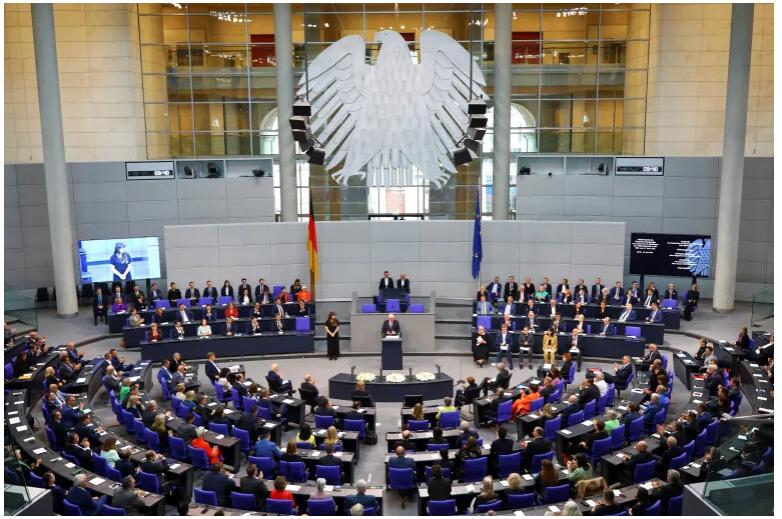The German parliament has approved immigration reforms designed to attract skilled workers to the country, which is suffering from an unprecedented labour shortage.
The legislation – initiated by the governing centre-left coalition of the Social Democrats, the liberal Free Democrats and the Greens – on Friday garnered 388 votes while 234 lawmakers voted against it and 31 abstained.
A conservative parliamentary bloc made up of the Christian Democratic Union and its Bavarian sister party, the Christian Social Union, voted against the legislation, arguing that it would ease entry for unskilled labourers.
The far-right Alternative for Germany party also voted against it.
The law includes a points-based system that lowers entry hurdles for work visa applicants according to their professional qualifications, age and language skills.
This year, the Association of German Chambers of Commerce and Industry (DIHK) said more than half of German companies were struggling to fill vacancies due to a lack of skilled workers.
The proportion of companies facing difficulties hiring was at its highest ever level, the DIHK found in its survey of 22,000 companies. Fifty-three percent reported worker shortages.

